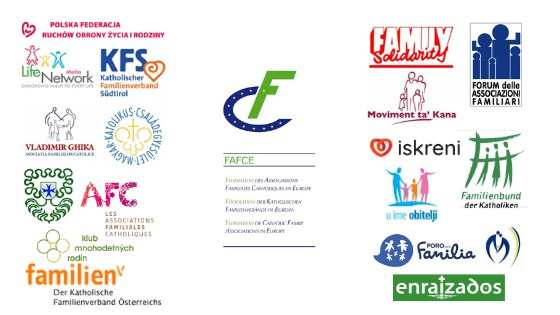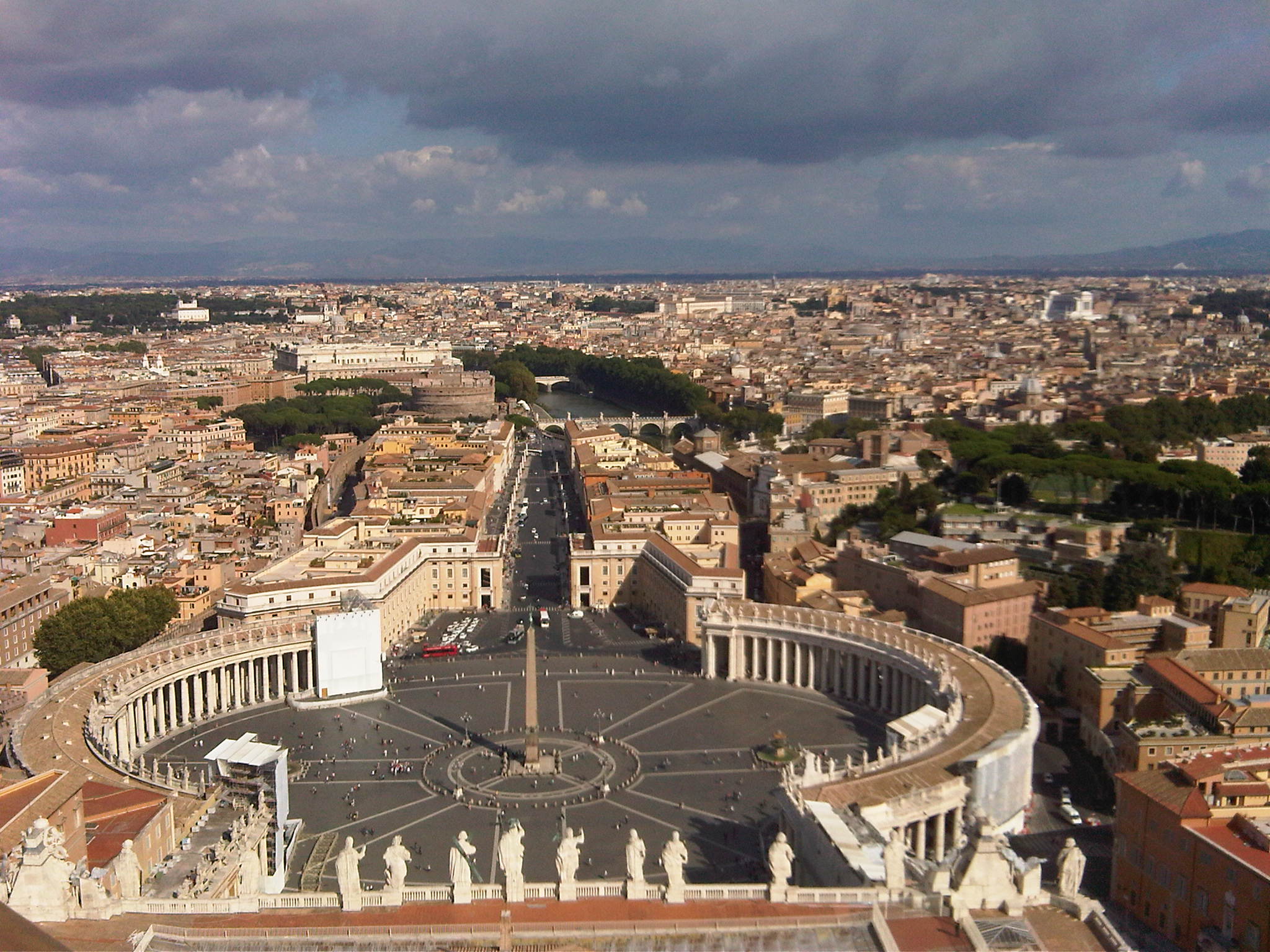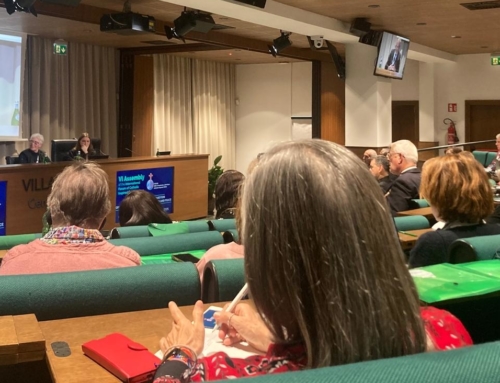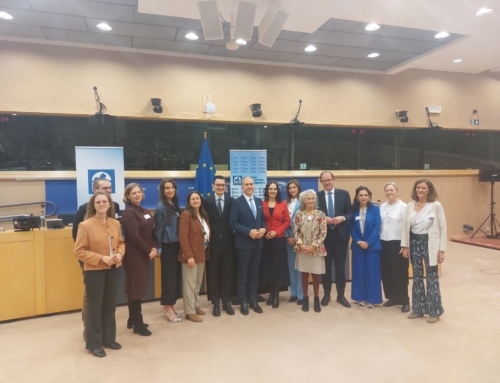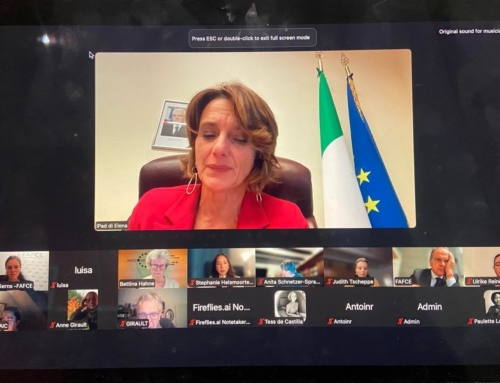Who has not heard of the recent Synod on the family? The press and the media have covered it and that is rather reassuring: the positions taken by the Church are not met with indifference. The Church is not called to please but to make disciples (by attraction and not by proselytism, says Pope Francis in the exhortation “The Joy of the Gospel”) and to baptize in the name of the Father, the Son and the Holy Spirit. Some positions – or at least according to the media – have sparked questions and puzzlement. What should we think of this? What is in fact a synod? What is not a synod?
The Synod of Bishops is a permanent institution established by Pope Paul VI, on 15 September 1965, in response to the desire of the Fathers of the Second Vatican Council to keep alive the spirit of collegiality engendered by the conciliar experience. Literally speaking the word “synod”, derived from two Greek words syn meaning “together” and hodos meaning “road” or “way”, means a “coming together”. A Synod is a religious meeting or assembly at which bishops, gathered around and with the Holy Father, have opportunity to interact with each other and to share information and experiences, in the common pursuit of pastoral solutions which have a universal validity and application. The Synod, generally speaking, can be defined as an assembly of bishops representing the Catholic episcopate, having the task of helping the Pope in the governing of the universal Church by rendering their counsel. Pope John Paul II has referred to the Synod as “a particularly fruitful expression and instrument of the collegiality of bishops”.[1]
A dialogue takes place at the highest level in the Church.Who could complain? Besides, Pope Francis had invited the bishops to express themselves very freely. Should we be surprised that they did so? In his closing speech at the Synod, the Pope himself says: “Personally I would be very worried and saddened if it were not for these temptations and these animated discussions; this movement of the spirits, as St Ignatius called it (Spiritual Exercises, 6), if all were in a state of agreement, or silent in a false and quietist peace.”[2] From the beginning, heinvited the fathers to speak “clearly”: “it is necessary to say all that, in the Lord, one feels the need to say: without polite deference, without hesitation. And, at the same time, one must listen with humility and welcome, with an open heart, what your brothers say. Synodality is exercised with these two approaches”.[3] The Pope took care, in the following sentences, to specify that he remains the guarantor of unity.
It is a matter of searching together for pastoral solutions that are universally valid and applicable. Here again the recent Synod is very clear: it addresses “the pastoral challenges of the family in the context of evangelisation.” This also means that it is not a matter of doctrinal changes. Let us be clear: there can be an evolution in the teaching of the Church but no radical change. Saint Vincent of Lérins expressed this in the following way in the 5th century: “Theintelligence, theknowledge, the wisdom, both ofindividualsand of the community, both of one man and of the wholeChurch, ought, in the course of ages and centuries, to increase and make much and vigorous progress; but yet only in its own kind; that is to say, in the samedoctrine, in the same sense, and in the same meaning.” (Commonitorium, 23) In other words, an apple tree develops what is initially contained in planted seeds and that might have been difficult to perceive, but if you plant apple seeds it is absolutely vain to hope to see a pear tree grow ! The disappointments will hence be proportionate to the false hopes and wrongful comprehensions of the nature of the Church.
Finally, the Synod is there to help the Pope.It is not a decision-making body. Deciphering majority tendencies may be interesting, but no conclusion may legitimately be drawn as regards the order of government. The bishops’ proposals do not have a decisive collegial character unless they are accepted and taken up by the Pope: “Through the Holy Father’s acceptance of the advice or the decisions of a given Assembly, the episcopate exercises a collegial activity which approaches but does not equal that manifested at an Ecumenical Council. This is a direct result of various factors: the ensured representation of the whole episcopate, the convocation by the Holy Father and “the unity of the episcopate, which, in order to be one, requires that there be a Head of the College” (John Paul II,Pastores Gregis, 56), who is first in the episcopal order.”
The Synod is hence a consultative assembly composed of bishops from the whole world that the Pope gathers when he considers it necessary to assist him in pastoral decisions.
It is unfortunate that the media focused on the issues of unions between two persons of the same sex and on non-access to communion for divorced and “remarried” persons (for the Catholic Church, a remarriage is only possible after the death of one of the spouses). The challenges are not limited to these two issues! The very first challenge is that of evangelisation. Then comes a reflection on the place of the family in this evangelization.
It is also unfortunate that technical discussions among experts have been exposed openly without a minimum of precaution, not in order to hide anything, but in the interest of providing the necessary elements to understand the debates. Hence, although it is not a matter of reviewing the indissolubility of marriage, it is always possible to improve the understanding of the reasons for non-access to communion for persons who are divorced and “remarried” and it is important to search for ways to welcome persons who are concerned by such situations! How? That is precisely one of the pastoral challenges upon which the participants in the Synod are invited to reflect.
It would certainly have been desirable to recall that a true dialogue can only be based on common ground: the depositum fidei (the deposit of the faith). Without common foundations, any dialogue is condemned in advance to become a dialogue of the deaf.
The recent Synod is only the first part of a reflection that will have two. The intention of this Synod is expressed in the title: “The pastoral challenges in the context of evangelization”. Pastoral questions exist and require reflection. The Pope wants bishops from all over the world to take part in this reflection. This is a reason to rejoice.The pastoral issues are much larger than those generally depicted by the media, according to the current trends. This reflection is necessary in order to pursue evangelization, recalling that what matters is to evangelise the world and not to make the gospel and the Church worldly.
Let us rejoice that the pastors reflect on these issues and let us pray for them, keeping in mind that the Holy Spirit leads the Church : “Many commentators, or people who talk, have imagined that they see a disputatious Church where one part is against the other, doubting even the Holy Spirit, the true promoter and guarantor of the unity and harmony of the Church – the Holy Spirit who throughout history has always guided the barque, through her Ministers, even when the sea was rough and choppy, and the ministers unfaithful and sinners. ” said the Pope in his closing address of the Synod. Let us give back to this supernatural view its rightful place: the first !
What then are the challenges? The final report (Relatio) of the Synod contains three parts: Listening: The Context and the Challenges of the Family; Looking at Christ: The Gospel of the Family; Facing the Situation: Pastoral Perspectives. The latter part indicates the various aspects that need to be developed according to the Synod fathers: announcing the gospel of the family, marriage preparation, accompanying the first years of married life, accompanying those who are civilly married or live together, caring for wounded families, pastoral attention to persons who have a homosexual orientation, transmitting life and the challenge of declining birth rates, educational challenges and the role of the family in evangelisation. The positive formulation of the challenges merits attention: it is not as much a matter of responding to problems – which would imply constantly running behind – as of helping to perceive and live the truth and beauty of family life. It is important not be overwhelmed by the difficulties – which are real – but to emphasise the beauty – which is just as real, and perhaps even more real – of marriage and family, a true way of sanctification, “school of humanity” (Gaudium et Spes, 52, referred to in the final report).
The synodal fathers conclude their report (Relatio) recalling that the Holy Father “invited us to be courageous in faith and to humbly and honestly embrace the truth in charity.” The truth without charity is unbearable, charity without truth is an illusion. This challenge applies to us all.
[1] http://www.vatican.va/roman_curia/synod/documents/rc_synod_20050309_documentation-profile_en.html#A._Discourse_of_His_Holiness_John_Paul_II_to_the_Council_of_the_General_Secretariat_of_the_Synod_of_Bishops_(30_April_1983)
